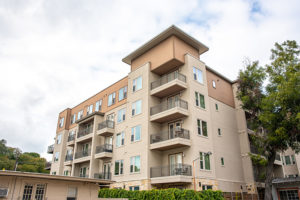March 31, 2020
Should I Include Utilities in Rent?
Many factors affect whether you should bill utilities or include them in rent. Every property has unique utility rates, legal regulations and market competition to be mindful of. Here are a few key factors that will help you decide.
Pitfalls of Including Utilities With Rent
Multifamily landlords that struggle to collect utilities will sometimes raise rent instead of submetering. The problem with this is that utilities are a large, non-fixed expense. Which means you’re covering a highly variable cost with a fixed rent payment.
This causes two problems.
First, utility rates go up. And they can increase faster than rent. Unlike the utility provider, you probably can’t raise rent too frequently. This is because frequent rent increases frustrate tenants and makes the property less competitive with the market. Rent control can also limit your ability to adjust rent.
Second, utilities are affected by seasonality. Some months are lower, others are astronomical. If you’re covering utilities with rent, you’re using a fixed sum that won’t always be enough. As the year progresses, you’d have to compare these surpluses and deficits to see if you’re recovering the money you need to.
Pros of Including Utilities in Rent
Keeps Competitive With The Market
Does the market where your property is located allow you to charge for utilities and stay competitive? Before you start billing, you’ll need an answer to this question.
The utilities included in rent have a notable impact on the competitiveness of a property. If you start charging for utilities and your competition doesn’t, you’ll make your property less competitive with the market. While the short term cost recovery might be nice, it won’t be sustainable if your vacancies increase dramatically.
If you are in a competitive market, you might be able to bill for some of your utilities while including the rest in rent. This will keep you competitive while improving cost recovery and NOI.
Before you decide how to handle your utility bills, it’s important to find the answer to this question. But it will require some due diligence and market research.
Legal Regulations Might Require It
State and local laws of utility billing are complex. They vary across municipalities and have strict regulations about what utilities you can bill tenants for, and what methods you can use to bill them.
The reality is you might not have a choice about some of the utilities you can include in rent. State and local laws might require you to include one or several bills.
If you’re unsure of what utilities you can bill for, it’s worth consulting a utility billing expert. (You can also find a brief overview of the subject in our Ultimate Guide to Submetering.)
Pros of Separating Utilities From Rent
Improves Your Bottom Line
One of the biggest benefits of utility billing is what it does to your bottom line.
A lot of landlords run into issues when rates spike on rent-included utilities. This makes it difficult to budget and cuts into the bottom line. Charging utilities and rent separately will protect you from this.
Managing utility costs as a separate item also allows you to budget your property properly. You know exactly what your costs are and don’t have to worry about accounting for variable expenses.
By making tenants responsible for their utility consumption, you can recover utility costs, cut down on expenses and increase your NOI.
Provides Insight Into Property Performance
Another benefit of charging for utilities is that it provides deeper insight into the consumption and performance of your property. Landlords with significant charges can use submeters and utility analytics to get insight into why it’s happening.
If your utility costs are rising and don’t know where that usage is going, working with a utility billing company can get your expenses under control.
Reduces Consumption
If you don’t charge tenants for utilities, they feel less responsible for it. Consumption goes up, and leaks often go unreported.
On average, tenants in submetered properties cut consumption by 30% across the board. This is because they are able to see a direct connection between their actions and saving money on bills at the end of the month.
This also works at a communal level with RUBS allocation. When neighbors see an opportunity to cut expenses, they often work together to collectively consume less.
Reducing consumption benefits landlords by reducing their liability on utility expenses each month. It’s also beneficial for properties looking to reduce their environmental impact.
Including Utilities in Rent: The Bottom Line
There are a lot of factors that affect whether you should bill utilities or include them in rent. The circumstances will be unique for each property. Conducting research and partnering with a utility billing company can make the decision easier.



